Submitted:
26 November 2024
Posted:
27 November 2024
You are already at the latest version
Abstract
Keywords:
1. Introduction
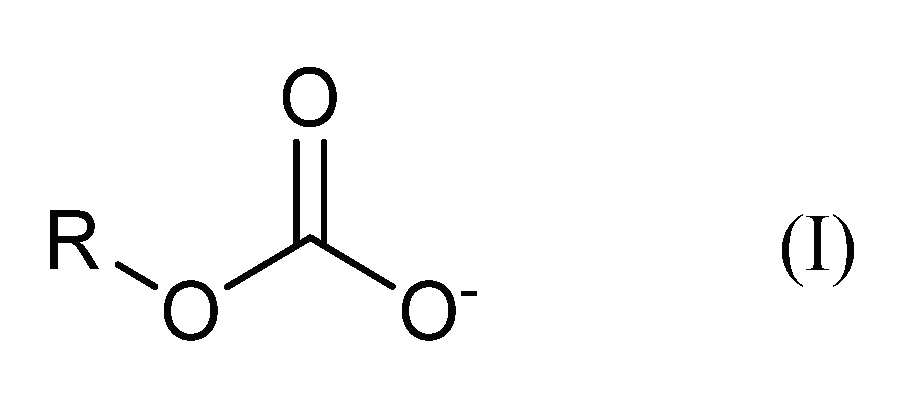
2. Materials and Methods
2.1. Chemicals and Materials
2.2. Modification of the gold electrode with mercaptoethanol
2.3. Electrochemical measurements
3. Results
3.1. Electrochemical characterization of a gold electrode modified with 2-mercaptoethanol
5. Conclusions
Author Contributions
Funding
Conflicts of Interest
References
- dos Santos VB, Vidal DT, Francisco KJ, Ducati LC, do Lago CL. Formation of isomers of anionic hemiesters of sugars and carbonic acid in aqueous medium. Carbohydrate Research. 2016, 428, 18–22. [Google Scholar] [CrossRef] [PubMed]
- Vidal DTR, Nogueira T, Saito RM, do Lago CL. Investigating the formation and the properties of monoalkyl carbonates in aqueous medium using capillary electrophoresis with capacitively coupled contactless conductivity detection. Electrophoresis. 2011, 32, 850–856. [Google Scholar] [CrossRef] [PubMed]
- Dumas JB, Peligot E. Sur le Carbrbovinate de Potasse. Compt. Rendus, 1837, 4, 563–565. [Google Scholar]
- Habermann, J. Über die Elektrolyse organischer Substanzen. Monatshefte für Chemie und verwandte Teile anderer Wissenschaften. 1886, 7, 529–551. [Google Scholar] [CrossRef]
- Hempel W, Seidel J. Über verbindungen des kohlendioxyds mit wasser, aethyläther und alkoholen. Berichte der deutschen chemischen Gesellschaft. 1898, 31, 2997–3001. [Google Scholar] [CrossRef]
- Siegfried M, Howwjanz S. On the bond of carbonic acid by alcohols, sugars and oxy acids. HS Z Physiol. Chem. 1909, 59, 376–404. [Google Scholar]
- do Lago CL, Vidal DT, Rossi MR, Hotta GM, da Costa ET. On the formation of carbonate adducts of fatty alcohols, sterols, and sugars in biological conditions. Electrophoresis. 2012, 33, 2102–2111. [CrossRef]
- Cieslarova Z, dos Santos VB, do Lago CL. Both carbamates and monoalkyl carbonates are involved in carbon dioxide capture by alkanolamines. International Journal of Greenhouse Gas Control. 2018, 76, 142–149. [Google Scholar] [CrossRef]
- Behrens R, von Harbou E, Thiel WR, Böttinger W, Ingram T, Sieder G, et al. Monoalkylcarbonate formation in methyldiethanolamine–H2O–CO2. Industrial & Engineering Chemistry Research. 2017, 56, 9006–9015. [Google Scholar] [CrossRef]
- Behrens R, Kessler E, Münnemann K, Hasse H, von Harbou E. Monoalkylcarbonate formation in the system monoethanolamine–water–carbon dioxide. Fluid Phase Equilibria. 2019, 486, 98–105. [Google Scholar] [CrossRef]
- Rossi MR, Vidal DTR, do Lago CL. Monoalkyl carbonates in carbonated alcoholic beverages. Food chemistry. 2012, 133, 352–357. [Google Scholar] [CrossRef] [PubMed]
- do Lago CL, Francisco KJM, Daniel D, Vidal DTR, dos Santos VB. A capillary electrophoresis/tandem mass spectrometry approach for the determination of monoalkyl carbonates. Rsc Advances. 2014, 4, 19674–19679. [Google Scholar] [CrossRef]
- Singh M, Kaur N, Comini E. The role of self-assembled monolayers in electronic devices. Journal of Materials Chemistry C. 2020, 8, 3938–3955. [Google Scholar] [CrossRef]
- Casalini S, Bortolotti CA, Leonardi F, Biscarini F. Self-assembled monolayers in organic electronics. Chemical Society Reviews. 2017, 46, 40–71. [Google Scholar] [CrossRef]
- Nicosia C, Huskens J. Reactive self-assembled monolayers: from surface functionalization to gradient formation. Materials horizons. 2014, 1, 32–45. [Google Scholar] [CrossRef]
- Kudelski, A. Chemisorption of 2-mercaptoethanol on silver, copper, and gold: Direct Raman evidence of acid-induced changes in adsorption/desorption equilibria. Langmuir 2003 19, 3805–3813. [CrossRef]
- Paik, W. K. , Han, S., Shin, W., & Kim, Y. Adsorption of carboxylic acids on gold by anodic reaction. Langmuir 2003, 19, 4211–4216. [Google Scholar] [CrossRef]
- Busenberg, E. , & Plummer, L. N. The solubility of BaCO3 (cr)(witherite) in CO2-H2O solutions between 0 and 90° C, evaluation of the association constants of BaHCO3+ (aq) and BaCO3 (aq) between 5 and 80° C, and a preliminary evaluation of the thermodynamic properties of Ba2+ (aq). Geochimica et Cosmochimica Acta 1986, 50, 2225–2233. [Google Scholar] [CrossRef]
- Lazanas, A. C. , Prodromidis. M. I., Electrochemical Impedance Spectroscopy - A Tutorial, ACS Meas. Sci. Au 2023, 3, 162–193. [Google Scholar] [CrossRef]
- Laschuk, N. O. , Easton, E. B., Zenkina, O. V., Reducing the resistance for the use of electrochemical impedance spectroscopy analysis in materials chemistry. RSC Adv. 2021, 11, 27925. [Google Scholar] [CrossRef]
- Jordan, J. , Ewing, G. J. The Protonation of Hexacyanoferrates. Inorg. Chem. 1962, 1, 587–59. [Google Scholar] [CrossRef]
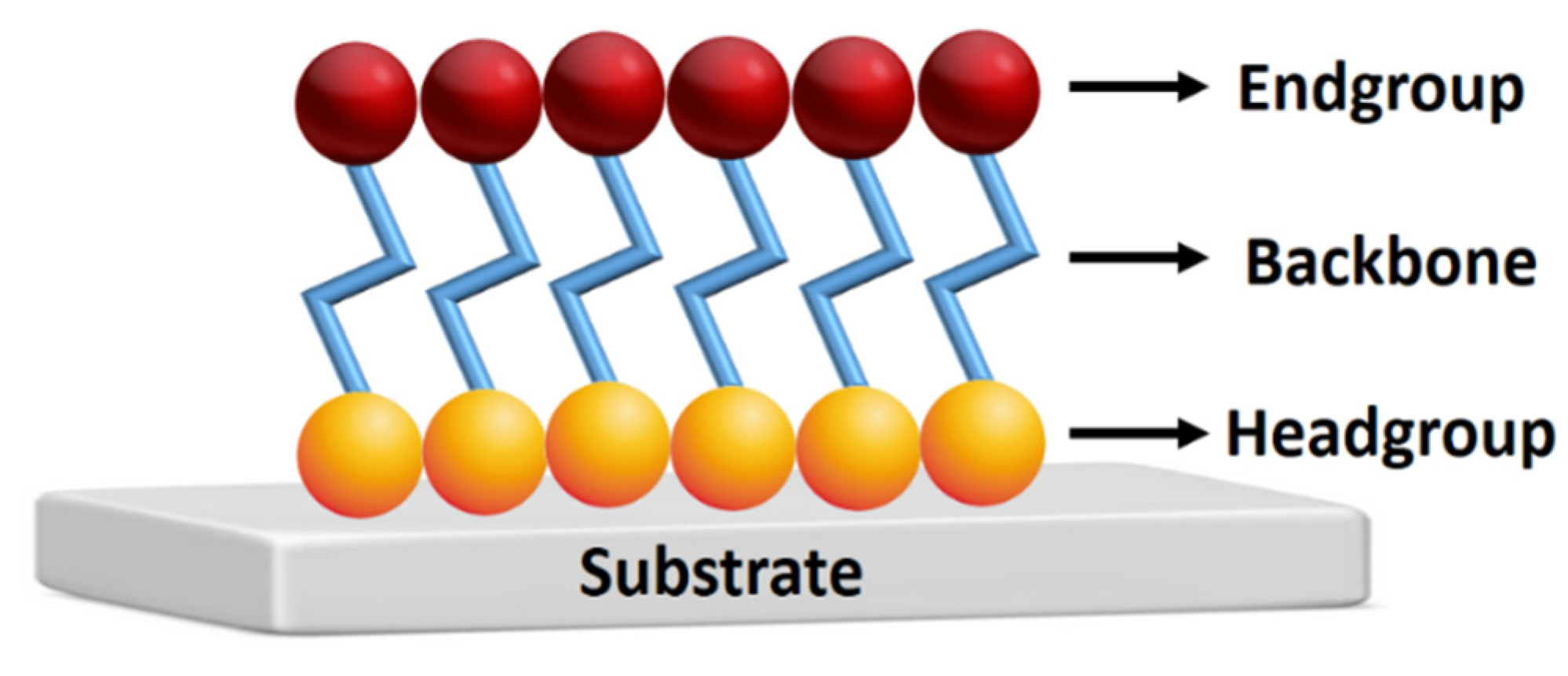
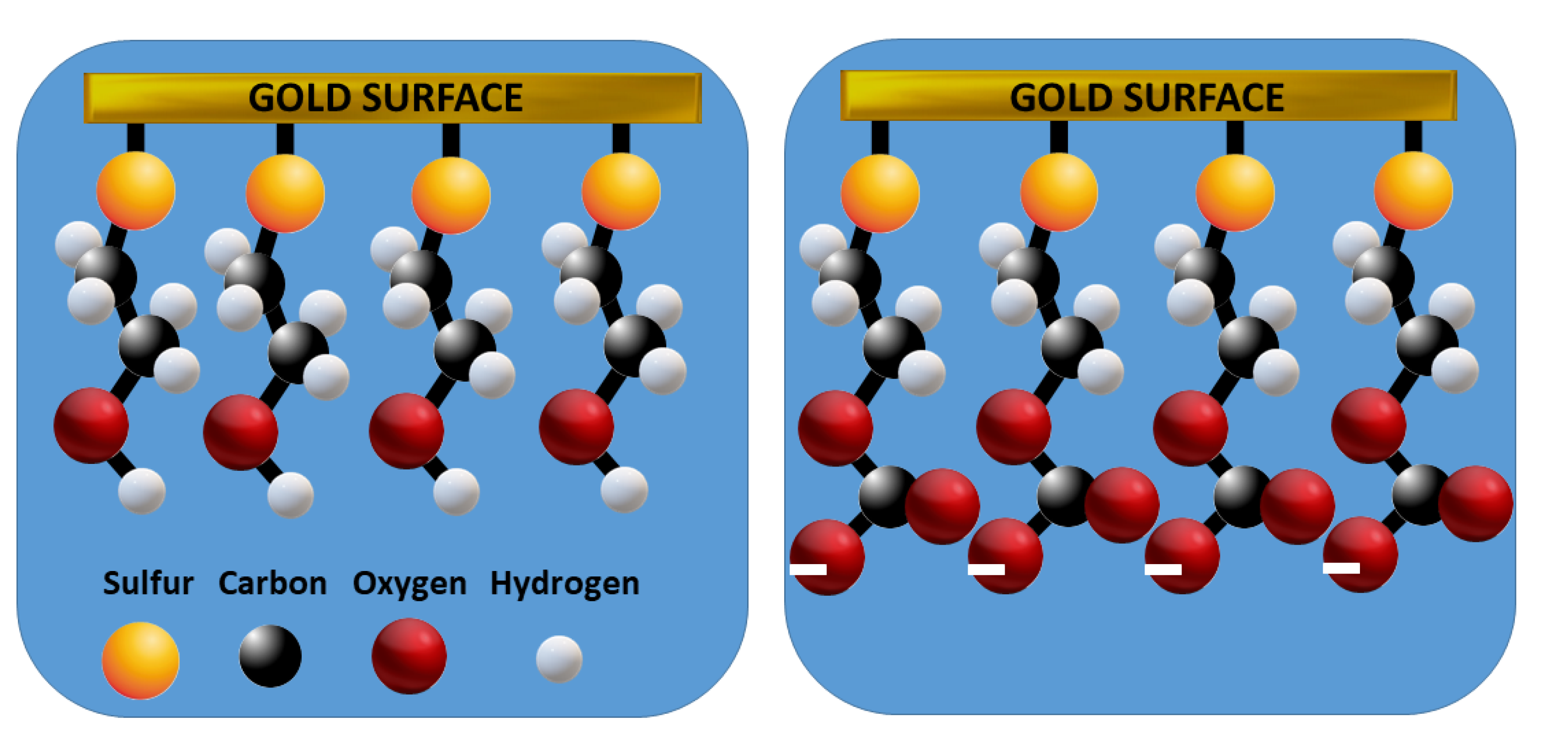
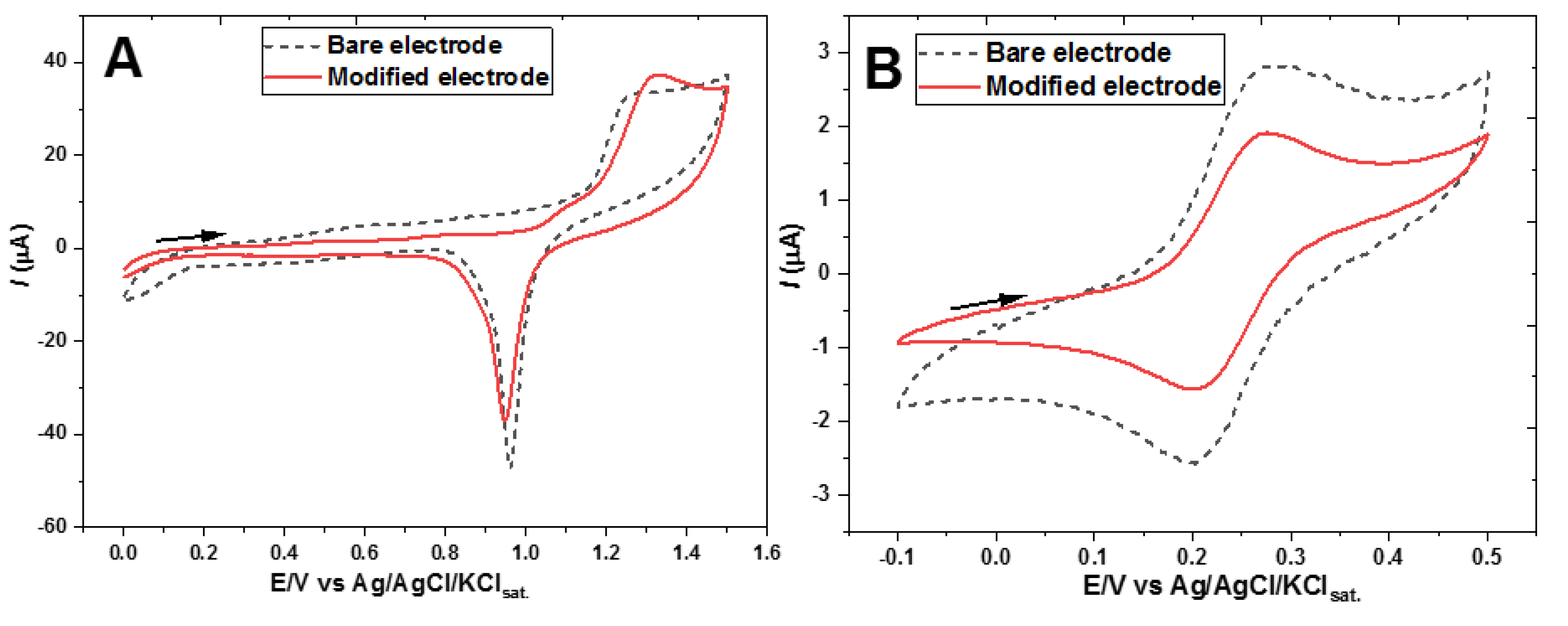
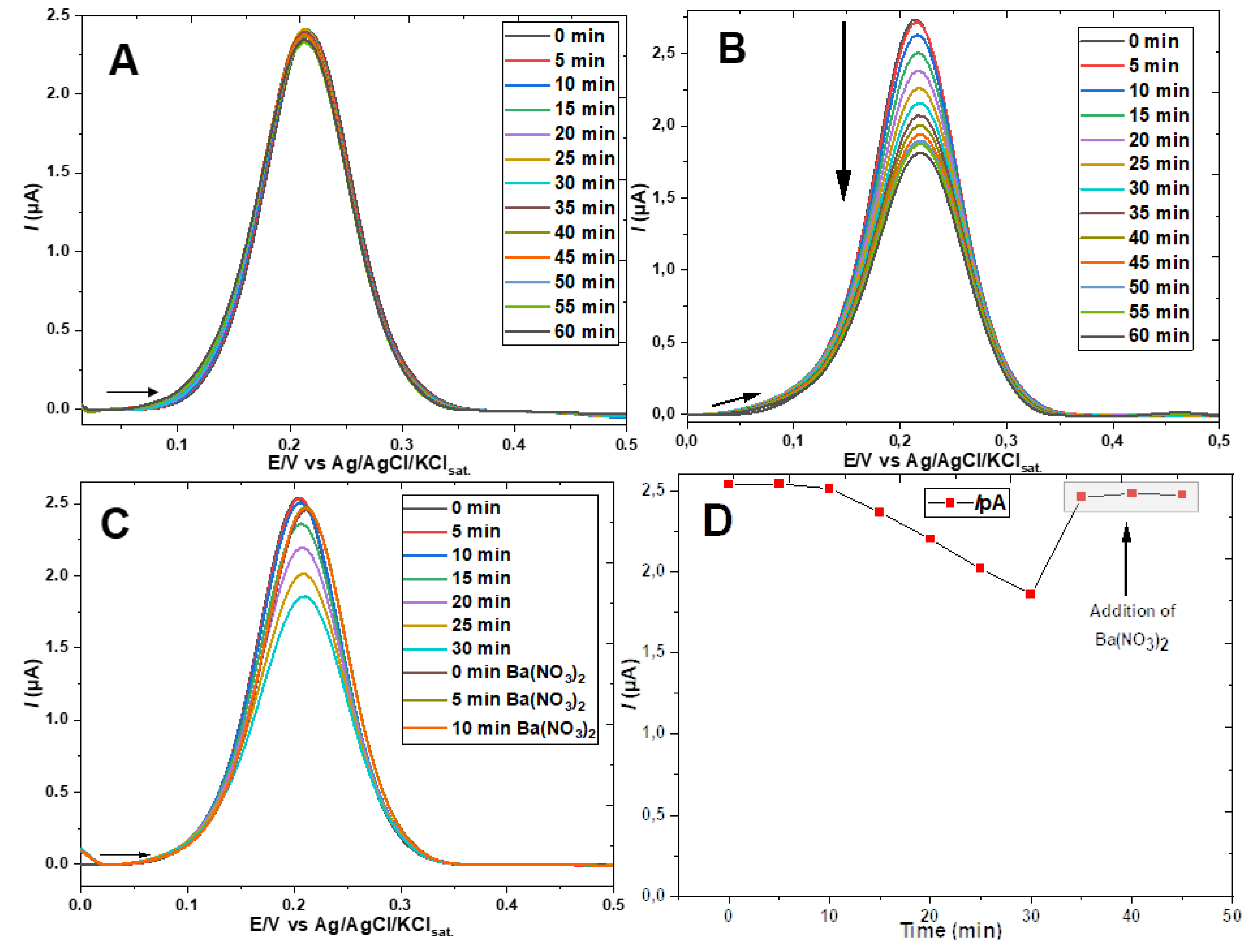
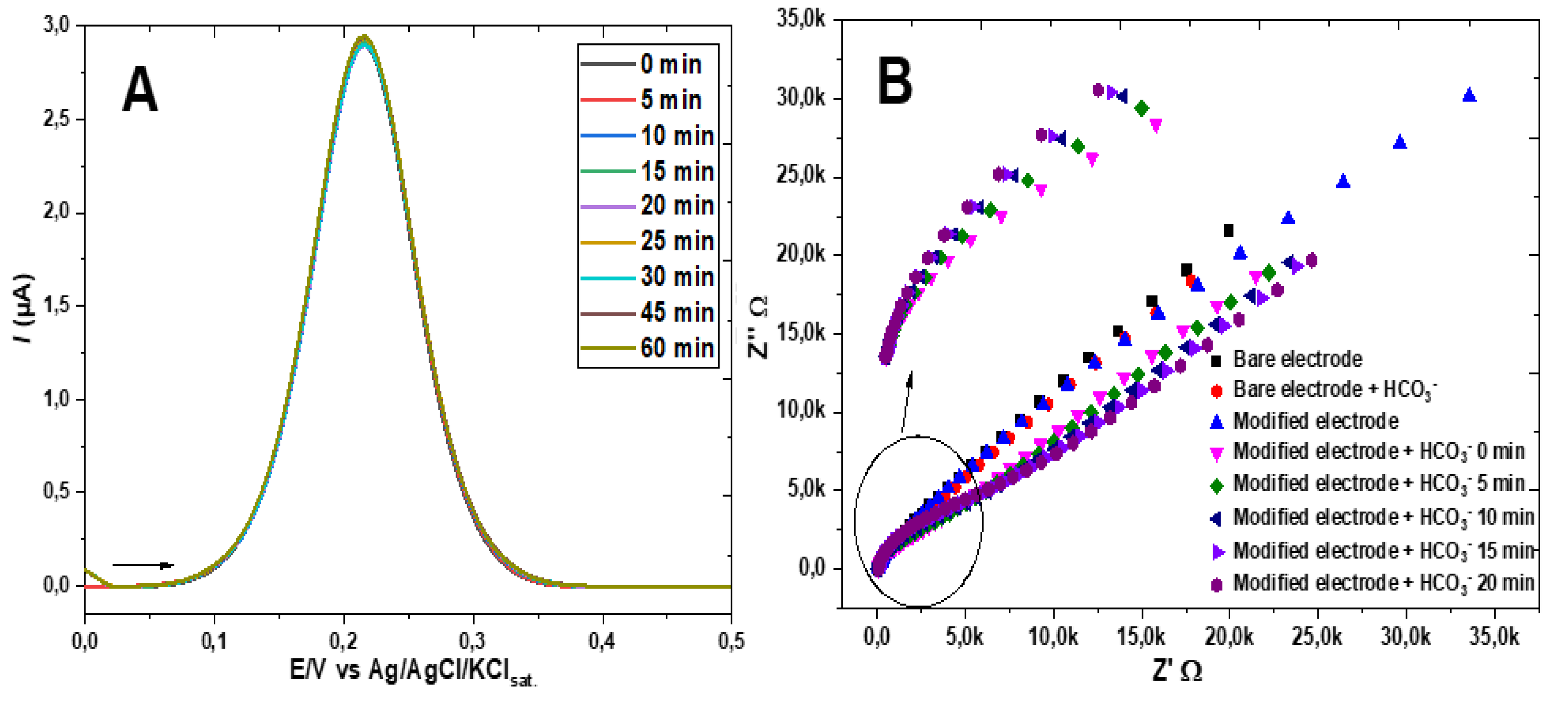
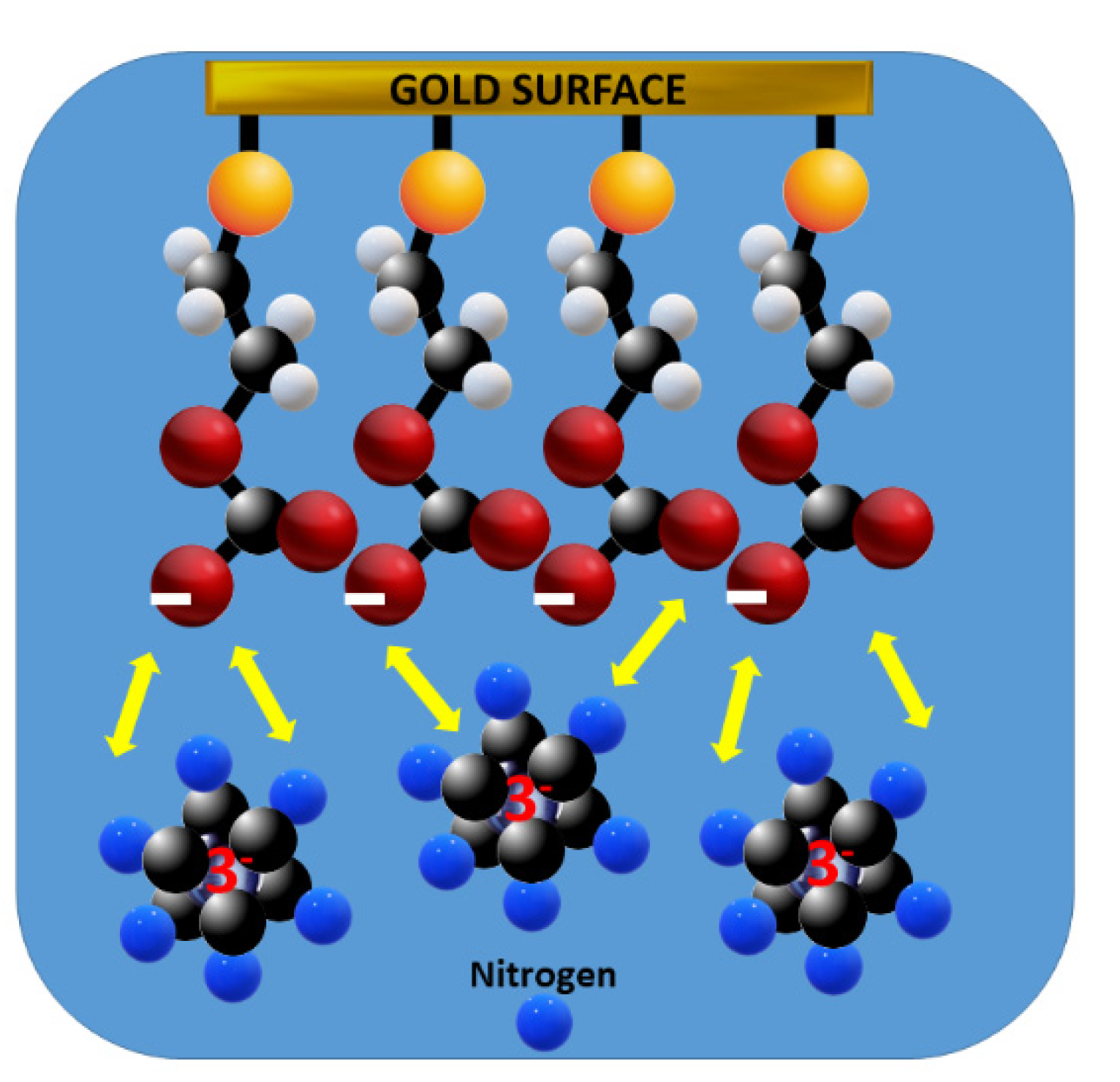
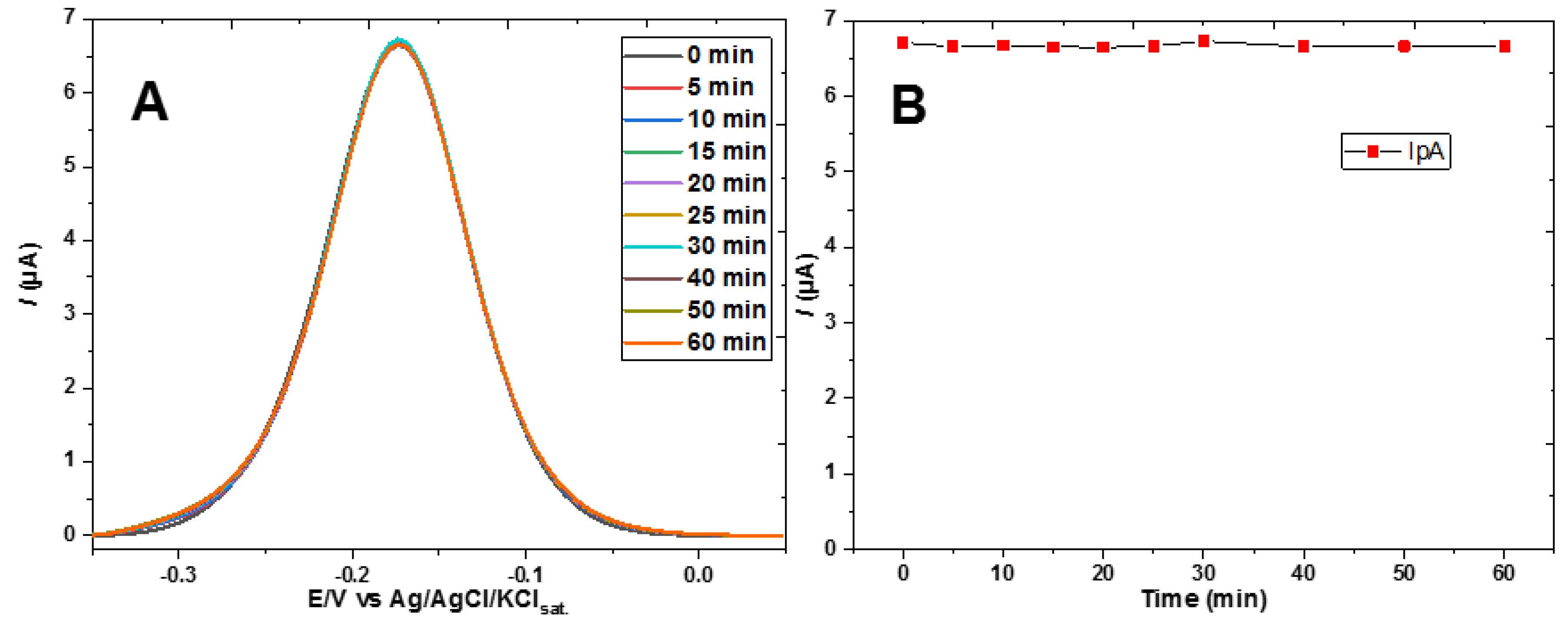
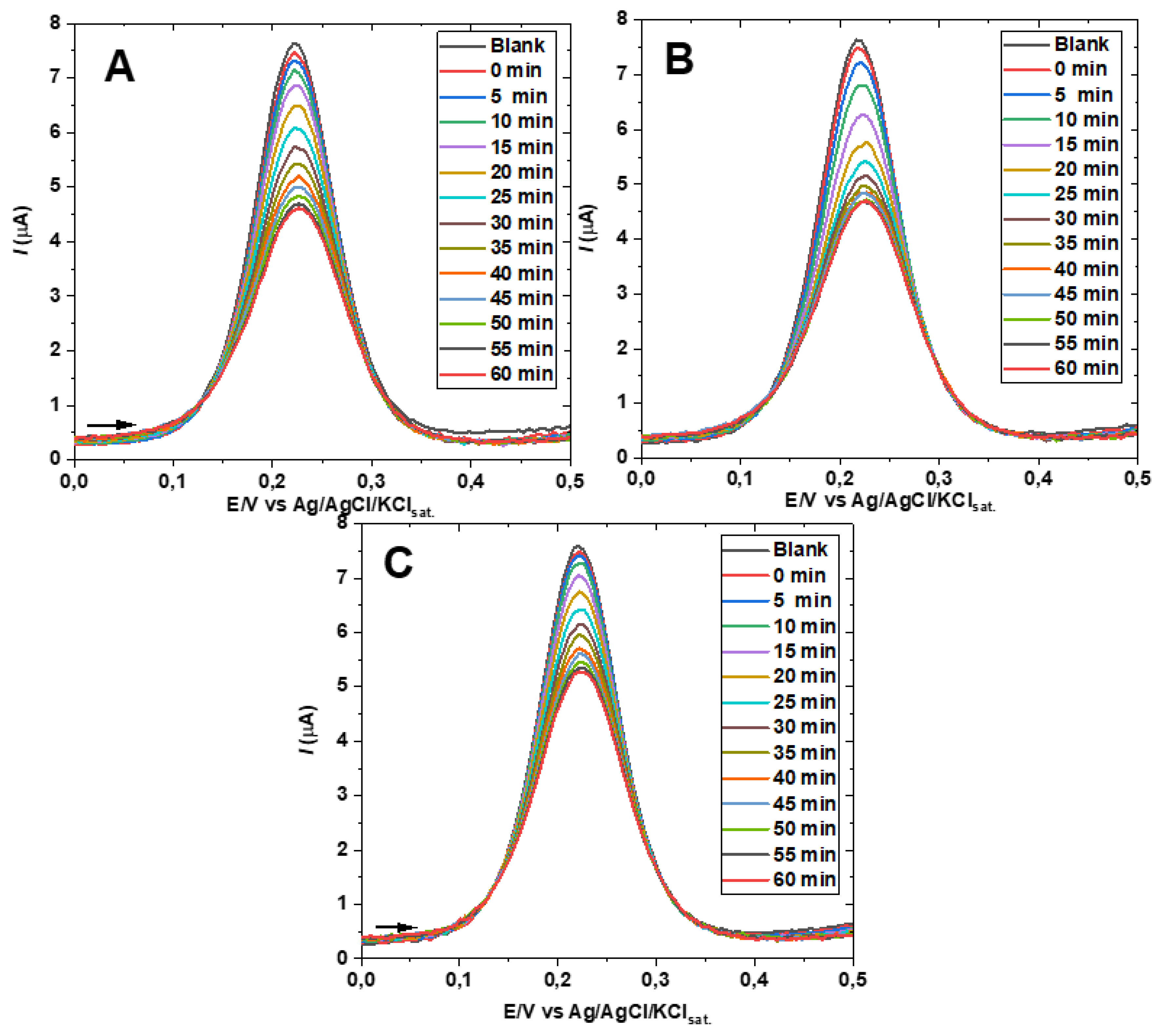
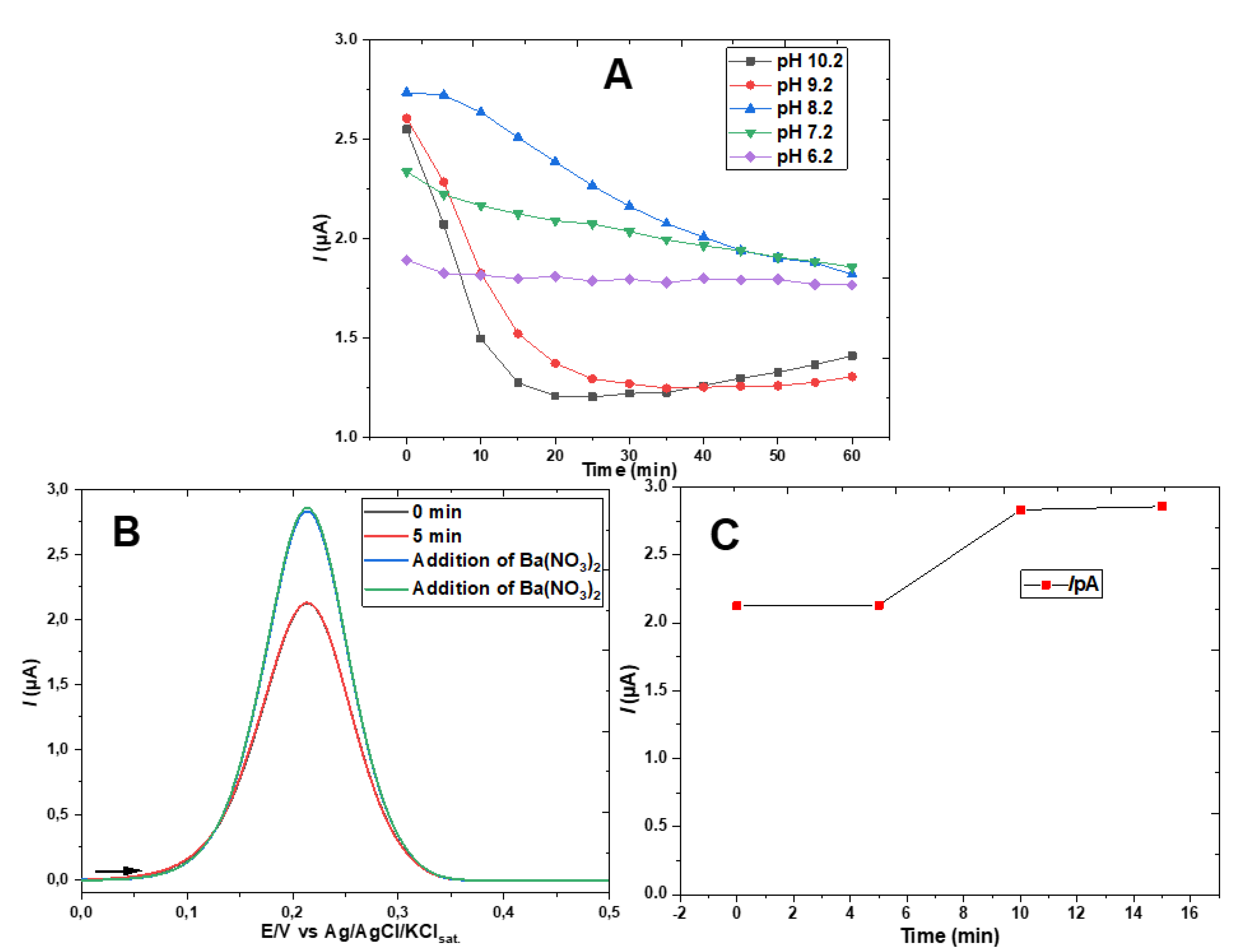
Disclaimer/Publisher’s Note: The statements, opinions and data contained in all publications are solely those of the individual author(s) and contributor(s) and not of MDPI and/or the editor(s). MDPI and/or the editor(s) disclaim responsibility for any injury to people or property resulting from any ideas, methods, instructions or products referred to in the content. |
© 2024 by the authors. Licensee MDPI, Basel, Switzerland. This article is an open access article distributed under the terms and conditions of the Creative Commons Attribution (CC BY) license (http://creativecommons.org/licenses/by/4.0/).




